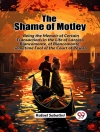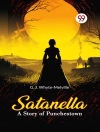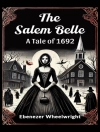In ‘A Romance of the West Indies, ‘ Eugène Sue crafts a captivating narrative that intertwines adventure, romance, and social commentary within the backdrop of the Caribbean. The novel employs a richly descriptive style, mirroring the lush, vibrant landscapes of the islands while exploring the complex dynamics of colonialism, race, and class. Sue’s work is situated within the 19th-century literary movement that sought to challenge societal norms and expose the injustices of his time, echoing the sentiments of contemporaries like Victor Hugo and Alexandre Dumas. This tale not only entertains but invites critical reflection on the historical context of European expansion in the Caribbean and the resulting cultural ramifications. Eugène Sue was a prolific writer whose own background as the son of a French doctor infused his narratives with intimate knowledge of diverse social realities. His own experiences traveling in the Caribbean, coupled with his fervent political ideals, inspired him to portray the complexities of colonial life through a lens that remained sympathetic to both the colonizer and the colonized. Sue’s commitment to social reform is reflected throughout his oeuvre, making this novel no exception. Readers who are drawn to historical narratives rich with cultural significance will find ‘A Romance of the West Indies’ a profound exploration of identity and societal constructs. This work is not only a testament to Sue’s literary prowess but also a compelling invitation to engage with the intricate histories of the Caribbean, making it a must-read for enthusiasts of classic literature.
Sobre o autor
Eugène Sue was a prolific French novelist born on January 20, 1804, in Paris. Initially pursuing a career in medicine, his fascination with literature and the plight of the lower classes soon redirected his path. Sue is best known for his enthralling tales that weave intricate narratives with a deep-seated commentary on the socio-economic fabric of his time. Among his notable works, ‘A Romance of the West Indies’ remains a testament to Sue’s narrative flair and his penchant for the melodramatic and the exotic, hallmarks of the Romantic movement. The extensive body of Sue’s work often touched upon themes of social injustice and was underpinned by his empathy for the oppressed, which he expressed through vivid and often tragic character portrayals. His masterpiece, ‘Les Mystères de Paris’ (The Mysteries of Paris), further cemented his reputation, influencing the genre of city mysteries and serialized storytelling. Sue’s literary style, characterized by suspense and dramatic tension, aimed to appeal to the emotions of his readership while shedding light on the darker corners of society. His works remain an integral part of 19th-century literature, continuing to captivate scholars and readers alike with their historical slice-of-life narratives. Sue passed away on August 3, 1857, leaving behind a legacy of being a pioneering figure in popular literature and an early advocate for social reform through the written word.












